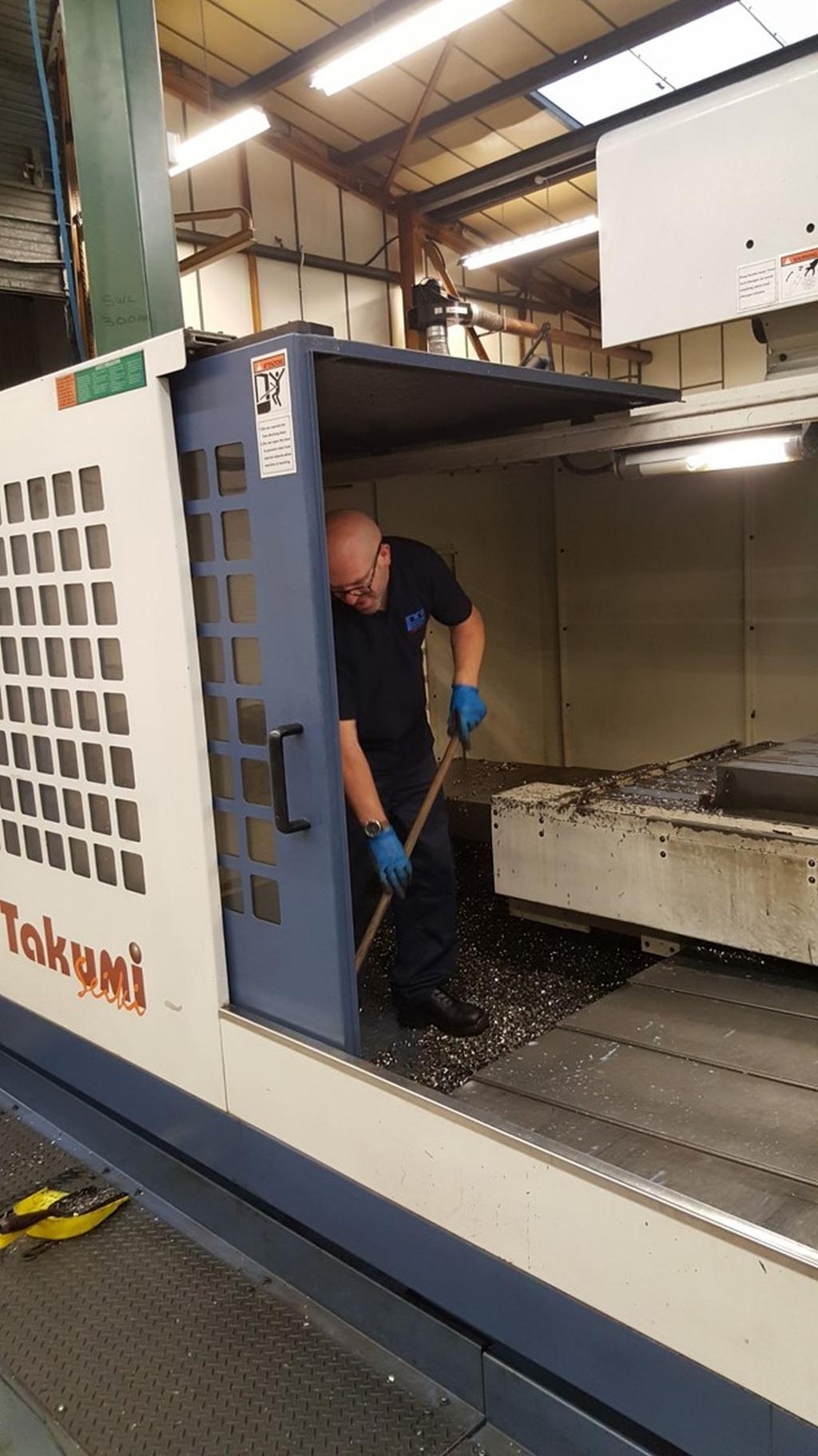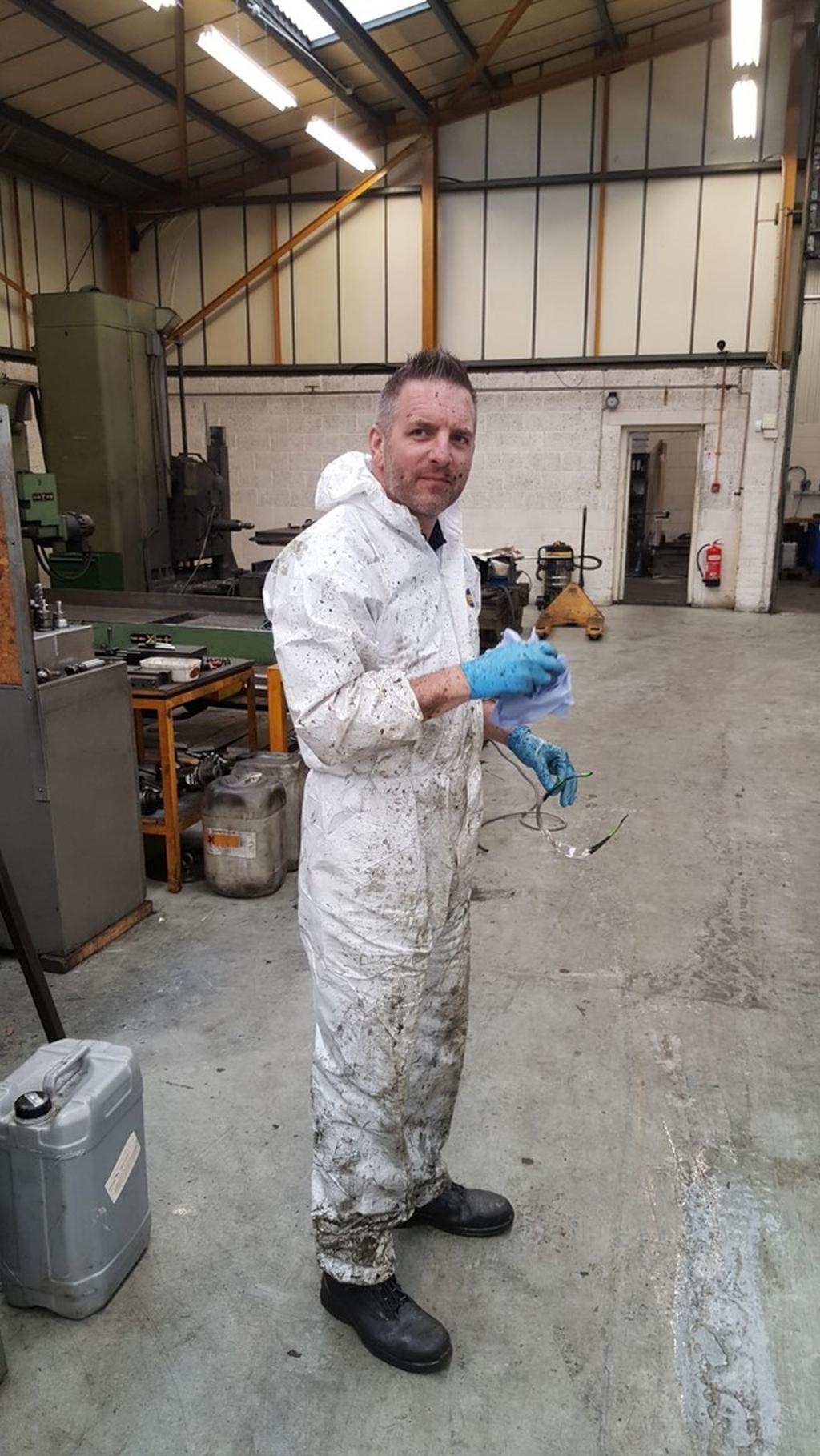The road to revival and modern manufacturing

When Sudbury, Suffolk-based precision engineering C. Rayment faced closure it looked like the end for the general engineering subcontractor, but as Ed Hill discovered, the arrival of a new management team, investment in up-to-date machining technology and new working practices has transformed the struggling business.
It may seem that rescuing a fading UK precision engineering company in this day and age would be a lost cause given global competition, the skills deficit, ever tighter regulation and difficulty finding finance, but one Suffolk-based company is demonstrating that fortunes can be turned around, and remarkably quickly if the commitment from management and staff is there.
Rayment Precision Engineering can trace its roots back to 1964 when its founder Cliff Rayment began operating an engineering shop from a Nissen hut on a former US airfield at nearby Waldingfield.
By 1984 the company had grown enough to move into its own purpose-built factory at the Chilton Industrial Estate. Rayment had established a good reputation with a wide range of customers serving the general high precision and agricultural machinery markets. Its capabilities included: milling, turning, grinding, welding, sheetmetal work and fabrication.
In 1994 Rayment’s current operations manager Andy Thackeray joined the company as a young centre lathe turner.
He says: Cliff was a passionate engineer and Rayment was quite cutting edge for its day. It was really a one-stop-shop doing anything from one-offs to medium range runs. I very much enjoyed working with the company and doing the centre lathe work. I worked here until 2001 but then I wanted to progress my career further so I joined Delphi Diesels Systems nearby.”
The way down
Rayment continued to trade successfully for 20 years but after its founder’s death in 2003, Mr Thackeray says there was a gradual decline. The company began to shed staff and a lack of investment meant much of its machining and associated technology had either broken down or was suffering from a severe lack of maintenance and servicing.
In fact, by 2018 the company’s future looked bleak. Staff numbers could be counted on one hand and its former owners had announced that it was going to close. It was at this point that Gary Harvey CEO of the MEL Engineering Group decided to step in.

Mr Harvey bought the company as a going concern to be part of the MEL Group and asked Mr Thackeray, now a principal engineer at Delphi Diesel Systems – but who had just been made redundant due to the fact that the multinational had decided to close its Sudbury plant and move production to Romania – to take over.
Mr Thackeray says: “I was a bit taken aback when Gary phoned me but it was a fantastic opportunity. I had always wanted to be in charge of a business and in many ways it was even better because it was a business that I knew and loved when I was working there.”
By this time the decline at Rayment had progressed considerably. Working practices had become shoddy, health and safety issues were overlooked, machinery was broken or neglected and the order book was almost empty.
“When I first walked into the factory it was horrendous,” Mr Thackeray says. “There was a lack of investment, lack of care, lack of cleanliness and a lack of morale. Staff were working without protective gear and the workshop was cluttered and full of machines that were either broken or just sitting there not being used.
“The smell of coolant was overwhelming and swarf and dirt was everywhere. There were even fixtures on the shelves that looked like they hadn’t moved an inch since I left 17 years before. It was a shock but it was a challenge too. Turning around the business and building it back up again was something that I felt I could do.”
The first thing Mr Thackeray did was find new staff who could help the business get back on its feet. In some ways the demise of the Delphi plant was a benefit for the small precision subcontractor.
Two former Delphi employees, Dave Bailey and Tony Bocking – who coincidentally had also started their engineering careers at C. Rayment – were brought on board. Like Mr Thackeray, the experience they had gained at Delphi in modern manufacturing methods and working practices could be aptly applied on a smaller scale at C. Rayment. Two further apprentices from Delphi also joined the company and four existing staff remained.


Although now part of the MEL Group Mr Thackeray was not given a blank cheque to invest in the floundering business. Everyone on the staff had to muck-in and clean the shopfloor. Machines that were still useful were moved and refurbished to create a better workflow, and many of the old material racking, cranes, rusting equipment and wiring was removed.
“We have transformed the workshop – we had to throw away around 200 tonnes of old machines, scrap metal, and other junk,” Mr Thackeray explains. “We rearranged the machines, cleaned and decorated the whole factory floor and partnered with a couple of local cutting tool suppliers, which means we are more up to date with the cutting technology that we use.”
Transforming technology
Mr Thackeray has been able to invest in some new equipment, mainly to help Rayment adopt more efficient manufacturing methods. Recent machine investments include a Mazak Quickturn 250MSY turning centre and a Citizen L20 LFV sliding headstock lathe.
The company also acquired GibbsCAM manufacturing software to help programme complex shapes and code the machines and a wireless direct numerical control (DNC) system which has allowed it to remove much of the old hard wiring around the factory.
Many of the company’s inspection and metrology devices have also been refurbished and proper calibration, traceability and total productive maintenance (TPM) processes have been put in place. Rayment has also implemented the Mel Group’s own production control software to help improve efficiency.


Mr Thackeray says as a subcontractor Rayment still has to compete on price, quality and delivery to win any contracts, even if they are within the Mel Group, and broadly to attract new external customers.
“All companies within the MEL Group have to stand alone, so we are not allowed to haemorrhage money. For any orders in Group we still have to supply on time and to the quality that they require. We are in the same competition as any other precision engineer. Fortunately, as well as our existing work with external customers we are now beginning to get more enquiries. Now people have heard the business is back on track they are more willing to see if we can step up to the plate.”
The way ahead
It’s only nine months since Mr Thackeray took over the running of C. Rayment but improvement still continues apace. The company will soon apply for ISO 9001 certification and it is also implementing a comprehensive training programme both for existing workers and apprentices.
“Tony Bocking is working on the training side of the business, he is a qualified trainer so he can bring staff and apprentices up to speed in terms of learning new skills. We are also implementing a proper training template that can be validated, and working with local schools, which also helps raise the profile of the company.”
[caption id="attachment_43784" align="aligncenter" width="1579"] (L-R) Andy Thackeray, operation manager, Tony Bocking, project engineer, Matt Laws, machine shop supervisor at C. Rayment[/caption]
(L-R) Andy Thackeray, operation manager, Tony Bocking, project engineer, Matt Laws, machine shop supervisor at C. Rayment[/caption]
So from a business that was on the brink of closure, C. Rayment now has 14 staff with enquiries from customers demanding the very highest precision engineered components continuing to swell the order books. And Mr Thackeray is convinced that despite increased global competition, well-run, highly-skilled, modern and efficient UK subcontractors like C. Rayment can be competitive and flourish.
He concludes: “When you see the big multinationals pulling out of the UK it’s easy to get negative but there are plenty of customers out there who need good subbies and we now fit the bill.
“We have some fantastic engineers on the shopfloor who are turning out some very high-quality parts. They can make anything from anything; whether it is stainless, aluminium, brass, bronze, advanced alloys or plastics.
“We pride ourselves on the fact that we will take on any job – one offs and small batches up to thousands on machines like the L20 if needed.
“We have all mucked in to transform the business; morale is so much better and the people who were here before can’t believe how things have changed. And we will invest in new technology when we can. I want us to be a modern one-stop-shop with as wide a range of capabilities as we can offer.”
C. Rayment Precision Engineering https://c-rayment.com













